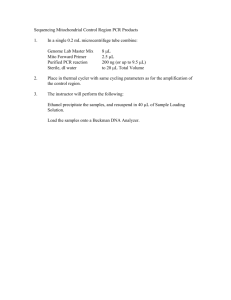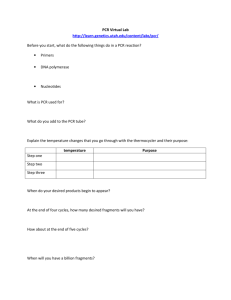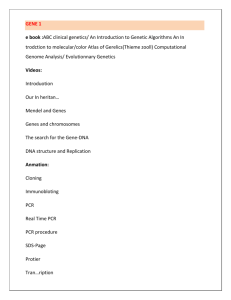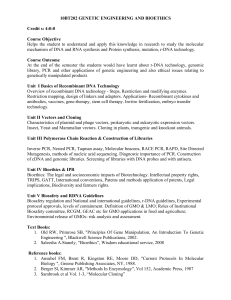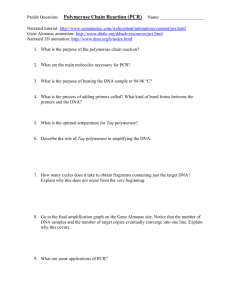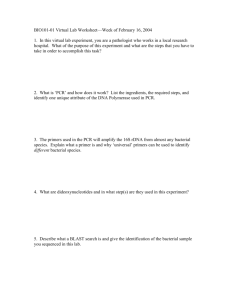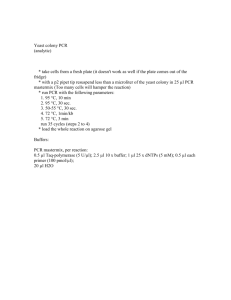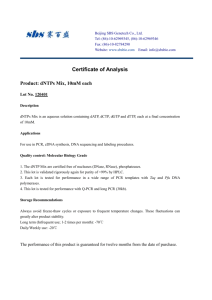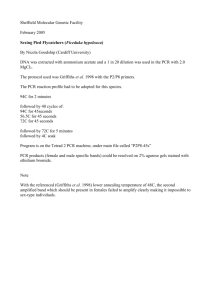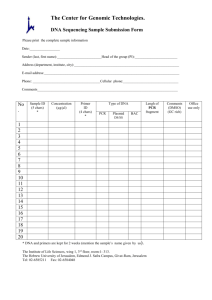holiday recess
advertisement
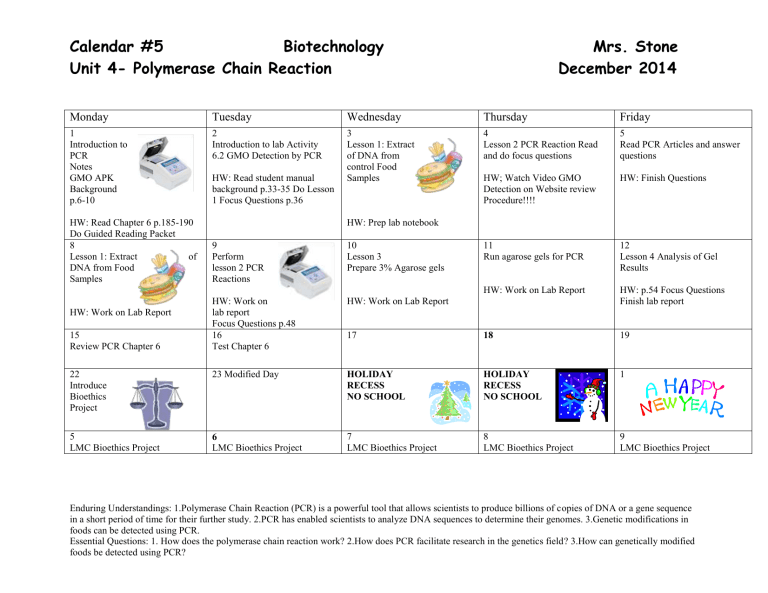
Calendar #5 Biotechnology Unit 4- Polymerase Chain Reaction Mrs. Stone December 2014 Monday Tuesday Wednesday Thursday Friday 1 Introduction to PCR Notes GMO APK Background p.6-10 2 Introduction to lab Activity 6.2 GMO Detection by PCR 3 Lesson 1: Extract of DNA from control Food Samples 4 Lesson 2 PCR Reaction Read and do focus questions 5 Read PCR Articles and answer questions HW; Watch Video GMO Detection on Website review Procedure!!!! HW: Finish Questions 11 Run agarose gels for PCR 12 Lesson 4 Analysis of Gel Results HW: Work on Lab Report HW: p.54 Focus Questions Finish lab report HW: Read Chapter 6 p.185-190 Do Guided Reading Packet 8 Lesson 1: Extract of DNA from Food Samples HW: Read student manual background p.33-35 Do Lesson 1 Focus Questions p.36 HW: Prep lab notebook 9 Perform lesson 2 PCR Reactions 10 Lesson 3 Prepare 3% Agarose gels HW: Work on lab report Focus Questions p.48 16 Test Chapter 6 HW: Work on Lab Report 17 18 19 22 Introduce Bioethics Project 23 Modified Day HOLIDAY RECESS NO SCHOOL HOLIDAY RECESS NO SCHOOL 1 5 LMC Bioethics Project 6 LMC Bioethics Project 7 LMC Bioethics Project 8 LMC Bioethics Project 9 LMC Bioethics Project HW: Work on Lab Report 15 Review PCR Chapter 6 Enduring Understandings: 1.Polymerase Chain Reaction (PCR) is a powerful tool that allows scientists to produce billions of copies of DNA or a gene sequence in a short period of time for their further study. 2.PCR has enabled scientists to analyze DNA sequences to determine their genomes. 3.Genetic modifications in foods can be detected using PCR. Essential Questions: 1. How does the polymerase chain reaction work? 2.How does PCR facilitate research in the genetics field? 3.How can genetically modified foods be detected using PCR?
